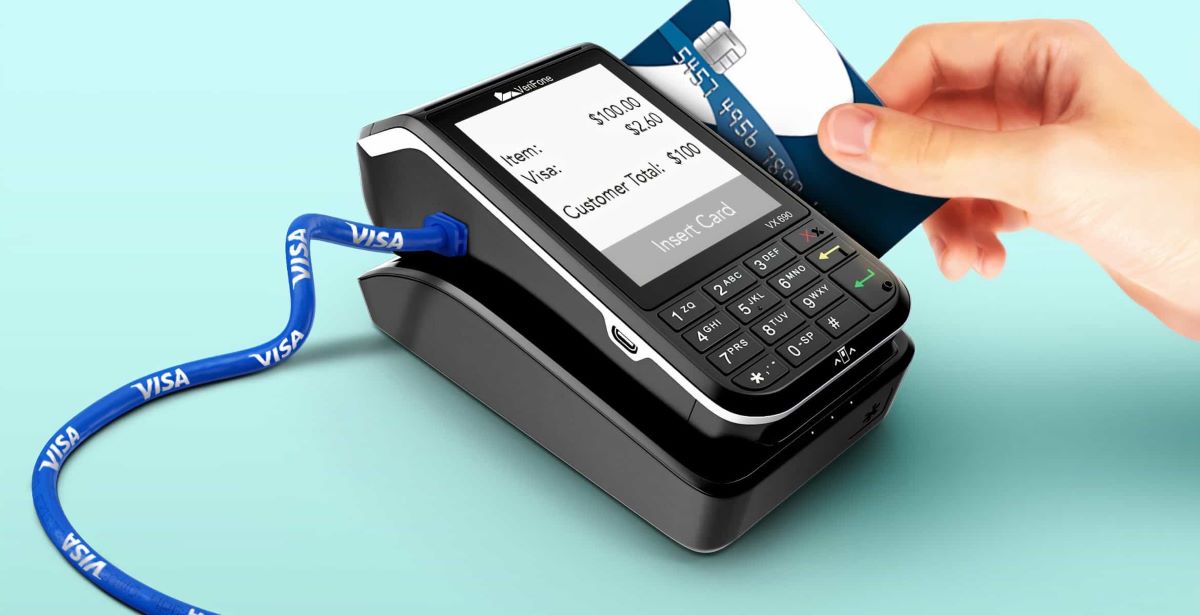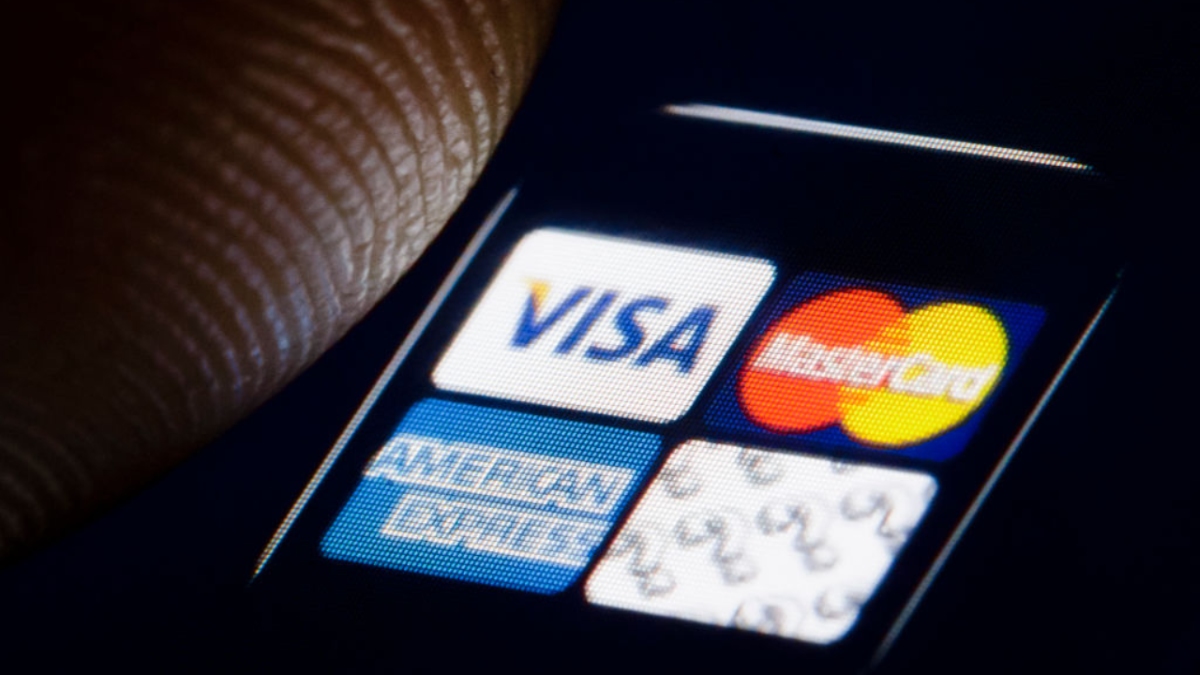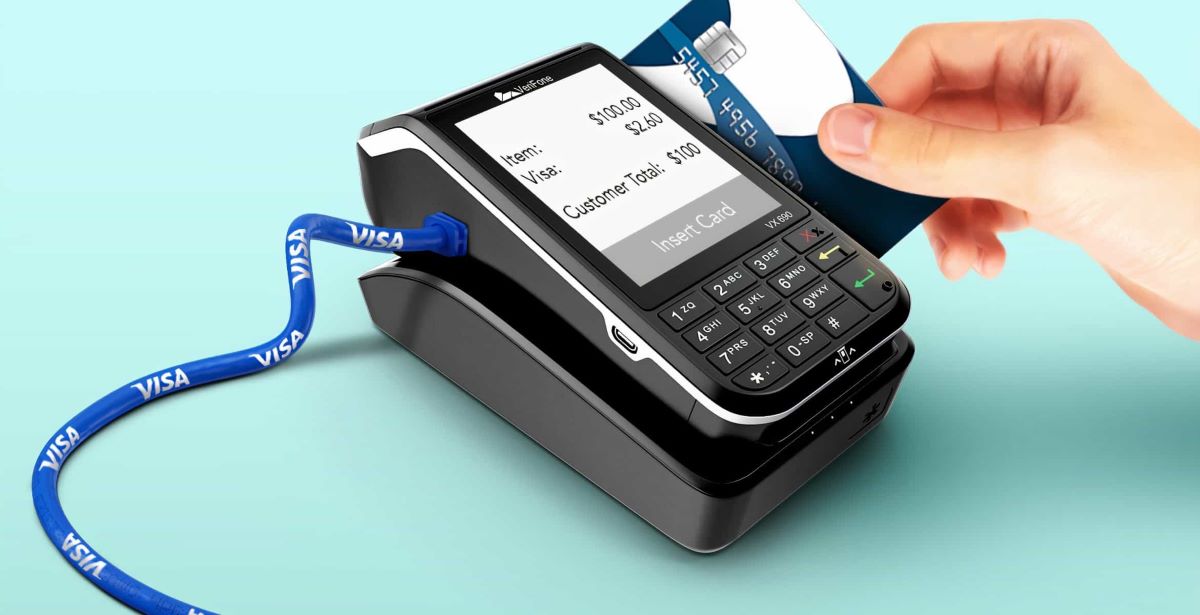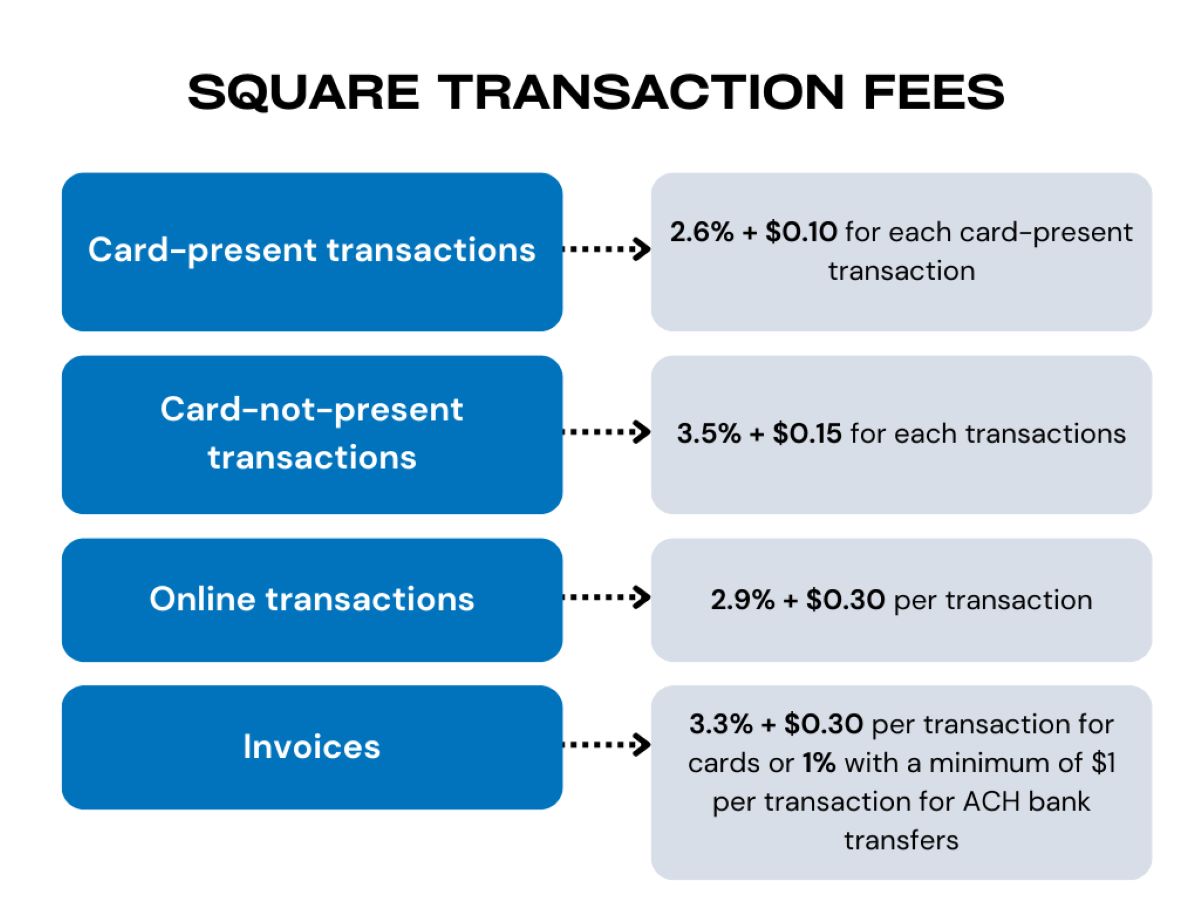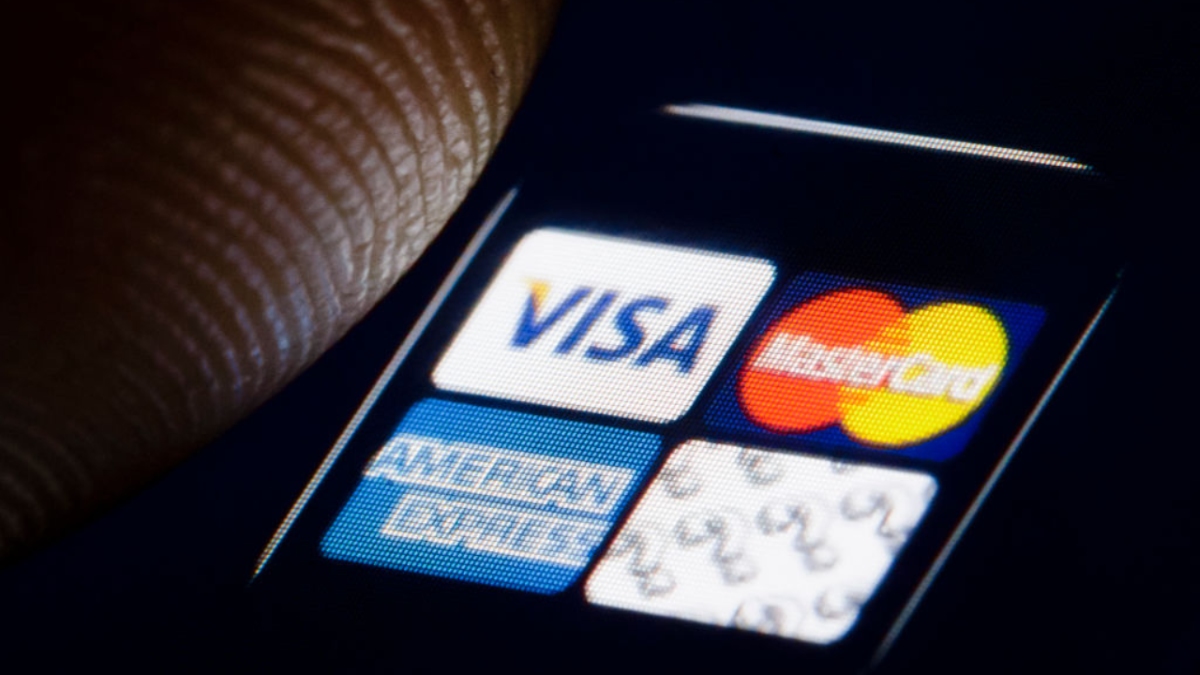Home>Finance>What Are The Square Merchant Fees For Nonprofits?


Finance
What Are The Square Merchant Fees For Nonprofits?
Published: February 24, 2024
Learn about the Square merchant fees for nonprofits and manage your organization's finances effectively. Find out how to optimize your financial strategy today.
(Many of the links in this article redirect to a specific reviewed product. Your purchase of these products through affiliate links helps to generate commission for LiveWell, at no extra cost. Learn more)
Table of Contents
**
Introduction
**
In the realm of nonprofit organizations, the ability to accept donations and payments efficiently is paramount. However, the process of handling financial transactions often comes with associated fees, which can impact the organization's bottom line. This is where Square, a popular payment processing solution, comes into play. Square offers a range of services tailored to the specific needs of nonprofits, enabling them to accept donations and payments seamlessly. However, it's essential for nonprofits to understand the intricacies of Square's merchant fees to make informed decisions and optimize their financial operations.
Navigating the world of merchant fees can be complex, especially for nonprofits seeking to maximize the impact of every dollar received. By delving into the specifics of Square's merchant fees for nonprofits, organizations can gain a deeper understanding of the costs involved and explore strategies to minimize expenses. This article aims to provide a comprehensive overview of Square's merchant fees for nonprofits, empowering organizations to make well-informed choices and streamline their financial processes. Understanding these fees is crucial for nonprofits to make the most of their resources and further their philanthropic endeavors effectively.
Understanding Square Merchant Fees
Before delving into the specifics of Square’s merchant fees for nonprofits, it’s essential to grasp the fundamental components of these fees. Square, like other payment processors, charges merchant fees to facilitate the processing of credit and debit card transactions. These fees encompass various elements, including interchange fees, assessment fees, and payment processing fees.
Interchange fees are set by card networks such as Visa, Mastercard, and Discover, and are paid to the card-issuing bank. Assessment fees, on the other hand, are collected by the card networks themselves. Additionally, payment processing fees cover the costs associated with processing transactions and are determined by the payment processor, in this case, Square.
It’s important to note that the specific merchant fees charged by Square can vary based on factors such as transaction volume, the type of card used (debit or credit), and the method of processing (in-person, online, or keyed-in transactions). Understanding these nuances is crucial for nonprofits aiming to optimize their payment acceptance strategies while managing costs effectively.
Moreover, Square offers transparent pricing, with no hidden fees or long-term contracts, providing nonprofits with clarity and flexibility in their payment processing arrangements. This transparency empowers organizations to make informed decisions and budget effectively, knowing exactly what to expect in terms of fees.
By comprehending the underlying structure of Square’s merchant fees, nonprofits can navigate the payment processing landscape with confidence, ultimately maximizing the impact of their received donations and payments.
Square Merchant Fees for Nonprofits
When it comes to nonprofits utilizing Square for payment processing, understanding the specific fees applicable to their operations is crucial. Square offers a competitive and transparent fee structure tailored to the unique needs of nonprofits, enabling them to accept donations and payments efficiently while managing costs effectively.
For in-person transactions, Square charges a fee of 2.6% + 10¢ per transaction. This straightforward pricing model simplifies cost calculations for nonprofits, allowing them to anticipate and budget for transaction fees accurately. Additionally, for online and keyed-in transactions, the fee is slightly higher at 2.9% + 30¢ per transaction. While these fees are standard for most businesses, Square’s tailored solutions for nonprofits ensure that organizations can leverage cost-effective payment processing services.
It’s important to highlight that Square offers discounted processing fees for registered 501(c)(3) nonprofits. This reduction in fees demonstrates Square’s commitment to supporting the philanthropic efforts of nonprofits, providing them with a cost-effective means of accepting donations and payments. Nonprofits can benefit from a discounted processing fee of 2.2% + 10¢ for in-person transactions and 2.3% + 30¢ for online and keyed-in transactions, further optimizing their financial resources.
Moreover, Square facilitates the creation of customized donation pages for nonprofits, allowing them to showcase their missions and initiatives while providing a seamless and secure platform for supporters to contribute. This feature, combined with the competitive processing fees, empowers nonprofits to enhance their fundraising efforts and expand their impact within their communities and beyond.
By leveraging Square’s tailored merchant fees for nonprofits, organizations can streamline their payment acceptance processes, minimize costs, and allocate more resources toward their charitable endeavors. This strategic approach to payment processing enables nonprofits to maximize the value of every donation received, ultimately driving greater positive change and social impact.
Tips for Minimizing Square Merchant Fees
While Square offers competitive and transparent merchant fees for nonprofits, there are several strategic measures that organizations can employ to further minimize their payment processing costs. By implementing these tips, nonprofits can optimize their financial resources and allocate a greater proportion of received funds toward their charitable initiatives.
- Encourage ACH Bank Transfers: Where feasible, nonprofits can encourage donors to contribute via ACH bank transfers rather than credit or debit card transactions. ACH transfers typically incur lower processing fees, thereby reducing the overall cost of receiving donations.
- Utilize Card Readers for In-Person Transactions: Leveraging Square’s card readers for in-person transactions can result in lower processing fees compared to keyed-in transactions. Encouraging donors to use physical cards for donations at fundraising events or in-office contributions can help minimize processing costs.
- Regularly Review Processing Statements: Nonprofits should routinely review their processing statements to identify any discrepancies or unexpected charges. This proactive approach can help rectify any issues promptly and ensure that the organization is being charged accurately for its transactions.
- Optimize Reporting and Analytics: Square provides robust reporting and analytics tools that can offer insights into transaction patterns and trends. By leveraging these tools, nonprofits can gain a deeper understanding of their payment processing activities and identify opportunities to streamline processes and minimize fees.
- Explore Integrated Fundraising Solutions: Integrating Square’s payment processing capabilities with fundraising platforms and donor management systems can streamline donation tracking and reduce administrative overhead. This integration can lead to greater efficiency and cost savings for nonprofits.
Additionally, nonprofits can benefit from educating their donors about the impact of processing fees on their contributions. By transparently communicating the costs associated with different payment methods, organizations can foster understanding and potentially encourage supporters to choose lower-cost transaction options, ultimately maximizing the value of their donations.
By implementing these proactive strategies and leveraging Square’s tailored solutions for nonprofits, organizations can effectively minimize their merchant fees, optimize their payment acceptance processes, and channel a greater proportion of funds toward their philanthropic endeavors.
Conclusion
As nonprofit organizations strive to fulfill their missions and create meaningful impact, the management of financial resources plays a pivotal role in sustaining their philanthropic efforts. Square’s tailored merchant fees for nonprofits offer a transparent and cost-effective solution for accepting donations and payments, empowering organizations to streamline their financial operations while maximizing the value of received funds.
By gaining a comprehensive understanding of Square’s merchant fees and the associated cost-saving strategies, nonprofits can navigate the payment processing landscape with confidence. The competitive processing fees, coupled with discounted rates for registered 501(c)(3) nonprofits, provide organizations with a means to optimize their financial resources and allocate a greater proportion of funds toward their charitable initiatives.
Furthermore, the seamless integration of Square’s payment processing capabilities with customized donation pages and fundraising platforms enables nonprofits to enhance their engagement with supporters and expand their reach, fostering a culture of giving and social impact.
It is imperative for nonprofits to leverage the tips for minimizing merchant fees, such as encouraging ACH bank transfers, utilizing card readers for in-person transactions, and optimizing reporting and analytics. By implementing these proactive measures, organizations can further reduce processing costs and enhance the efficiency of their payment acceptance processes.
In essence, Square’s merchant fees for nonprofits, combined with strategic cost-saving approaches, empower organizations to amplify the impact of every donation received. By embracing these tailored solutions and implementing best practices, nonprofits can navigate the financial landscape with agility, ensuring that their resources are channeled toward driving positive change and creating a lasting difference in the communities they serve.
Ultimately, Square’s commitment to supporting nonprofits through transparent pricing, innovative payment solutions, and cost-saving opportunities reflects a shared dedication to advancing philanthropy and social good, fostering a collaborative ecosystem where nonprofits can thrive and make a meaningful difference in the world.
